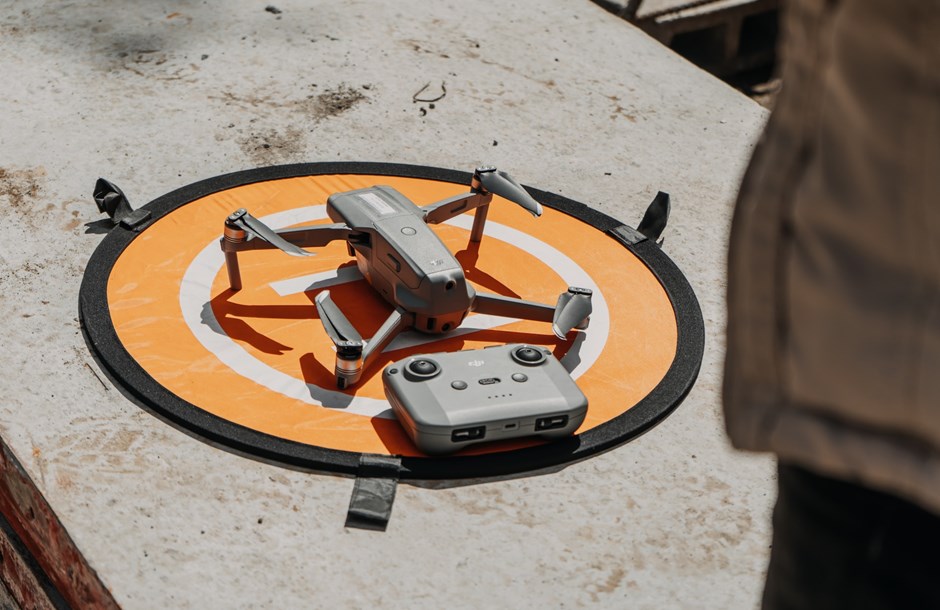How the use of drones in construction is improving safety and efficiency
Drones have really ‘taken off’ in the construction industry in recent years, and their use is only set to expand in the future. They are a valuable tool for site managers, site inspectors, health and safety advisors, surveyors and other construction professionals.
Here we explain more about the use of drones in the construction industry.

What is a drone?
A drone is an unmanned aerial vehicle (UAV) that can be operated from the ground and can capture high quality video footage and data from the skies. Drones are used widely in many industries, and the use of drones in construction has increased rapidly.
Drones require their flyers and operators to be registered with the Civil Aviation Authority in the UK. Flyers must pass a theory test to qualify for a Flyer ID, and the operator ID is a registration number that must be attached to your drone.
How are drones used in construction?
Aerial surveys and inspections
Topographic surveys are essential in large scale construction projects, but conducted through traditional methods they are labour-intensive and time-consuming. Drones can make aerial surveys and inspections much easier, quicker and less costly, and provide more reliable information. 3D models can be created from the data and images the drones record, using BIM technology, pinpointing any issues or details that engineers or surveyors might have missed with the naked eye. Detailed inspections can take place without the need to erect scaffolding or utilise teams of workers.
Improving safety
One of the main benefits of using drones in construction is their ability to highlight site areas where worker safety may be compromised. There may be numerous hidden dangers on large construction sites that only a drone could properly detect, such as unbalanced platforms or unstable footings. Drones can also perform tasks instead of workers in dangerous parts of a site, such as delivering equipment or taking measurements at significant heights.
Monitoring project progress
Keeping the client happy is always beneficial in construction projects, and drones can play a key part in this. Their hi-resolution images and video footage can be used to impressive effect in progress updates, and the data they capture can help the project team with important insights. A client will be reassured that their project is progressing well, and that the construction company carrying out the work is utilising the latest digital technology.
What are the advantages of drones in construction?
There are many benefits to using drones in the construction industry. Any construction manager would want to have access to drone technology if they could, because using them makes such a difference to the key metrics of a project – budget, time and quality.
- On-board technology – it is not just about the hi-resolution moving and still images that a drone can take. A drone has a wealth of other powerful integrated technology, from GPS to thermal and infrared sensors.
- Labour-saving and cost-effective – resources can be redeployed by using drones for surveys, site inspections or safety checks. Efficiencies can be gained, and cost savings made, despite the initial investment in the drone equipment and software. Data can be analysed as soon as it is sent by the drone.
- Time-saving – using a drone drastically reduces the amount of time it takes to perform certain tasks on a construction site. For example, a real-time safety or security check of a site can take a matter of minutes and requires only the drone operator’s time.
- Quality – at the end of the day, better buildings can be produced. A drone can see things from the sky that a worker may not be able to. Mistakes can be rectified, and design and planning issues highlighted at earlier stages in a project, saving valuable time and cost.
Inspired by what you’ve read? Discover more about the technology used in construction
At Go Construct we have a wealth of information about what it is like to work in construction, including salary expectations, skills and routes to various careers in the industry.
- Find out more about digital careers in construction
